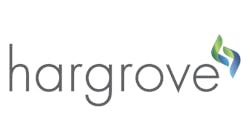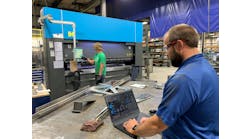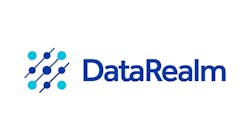Press releases from Emerson and Yokogawa arrived within days of each other at the beginning of February, revealing that Shell is extending the concept of main automation contractor (MAC) through a new form of global framework agreement or GFA. According to the Emerson version of the release which, like that from Yokogawa, has worked its way through the Shell approvals process, the approach expands the MAC strategy that Shell has followed in its downstream businesses for a number of years to make it the center-point of an enterprise-wide automation strategy.
Yokogawa, for its part, says Shell began to reduce the number of equipment and systems suppliers for its plants last year and has assessed and narrowed down the list of contractors that it works with in the control systems field. The move forms part of an initiative to achieve "top quartile performance" across categories in support of its 'More Upstream, Profitable Downstream' strategy.
Both vendors' releases have Shell's upstream automation portfolio manager Nick Curley describing GFAs as "a completely new approach within Shell" and adding that "It is a long-term, competitive, collaborative, performance-based relationship that will facilitate the delivery of considerable value to both parties." Emerson, however, has a slightly more voluble Curley adding that Shell "will be looking to emulate this approach in many other key global categories in the future."
Full and open access
Unlike Yokogawa, apparently, Emerson also persuaded Shell's Enterprise Categories & Suppliers division general manager for equipment Ronaldo Marques to be quoted. "This new agreement will put Emerson in a position to substantially broaden its main automation contractor footprint within Shell," he is reported as saying, adding that "For the first time in history, Emerson will have full and open access to all Shell business units -- upstream, downstream, wind, power and biofuels -- plus affiliated joint ventures."
As to the agreements themselves, Emerson says it is a five-year deal to serve as MAC on future capital projects globally, providing project and support services for main automation systems, including DCSs and Safety Instrumented Systems. What it subsequently describes as "the contract" also provides for ongoing maintenance of existing systems and the supply of new systems for brownfield and greenfield facilities.
Yokogawa, for its part, simply describes its agreement as covering integrated production control and safety instrumented systems, but neglects to mention any particular time frame, although it does say its deal also includes ongoing maintenance of systems and the supply of new systems for both brownfield and greenfield projects.
Alarm management wins U.K. government funding
Gerrards Cross, UK-based geometric process control (GPC) pioneer Curvaceous Software has won funding to support further development of its work on the management and control of alarm floods. The funding, made available after an assessment of a number of criteria, including the level of technological advance and risk, was awarded by Finance South East on behalf of the South East England Development Agency (SEEDA). It will allow the Curvaceous research team to develop new techniques to eliminate alarm floods and provide plant operators faced with emergencies with annunciation of only the most significant alarms and at a rate at which they can handle them.
Curvaceous' work on alarms is based on its GPC technology. Its Visual Explorer software allows hundreds of process variables and their alarm limits to be viewed on a single graph while its Process Modeller tool provides a real-time view of the operating envelope of a process and its position within it.
Curvaceous recently launched Visual Explorer 2.5 and announced enhancements to Process Modeller which together deliver consistent hi-lo alarm limits and alerts starting from the behavioral information buried in process history data rather than alarm log data.
The consistent alarms approach won the company the European Process Safety Centre (EPSC) award in 2003. According to the company, the new release provides instant feedback on annunciation rates and standing alarm counts and delivers time savings of at least 20% in the alarm review process, while also reducing engineering time for on-going change management. "Our aim is to transform alarm systems so that they are truly valued, useful when most needed and, most importantly, contribute to solving the problem instead of becoming the distraction that they so often are today," explained managing director Robin Brooks.



